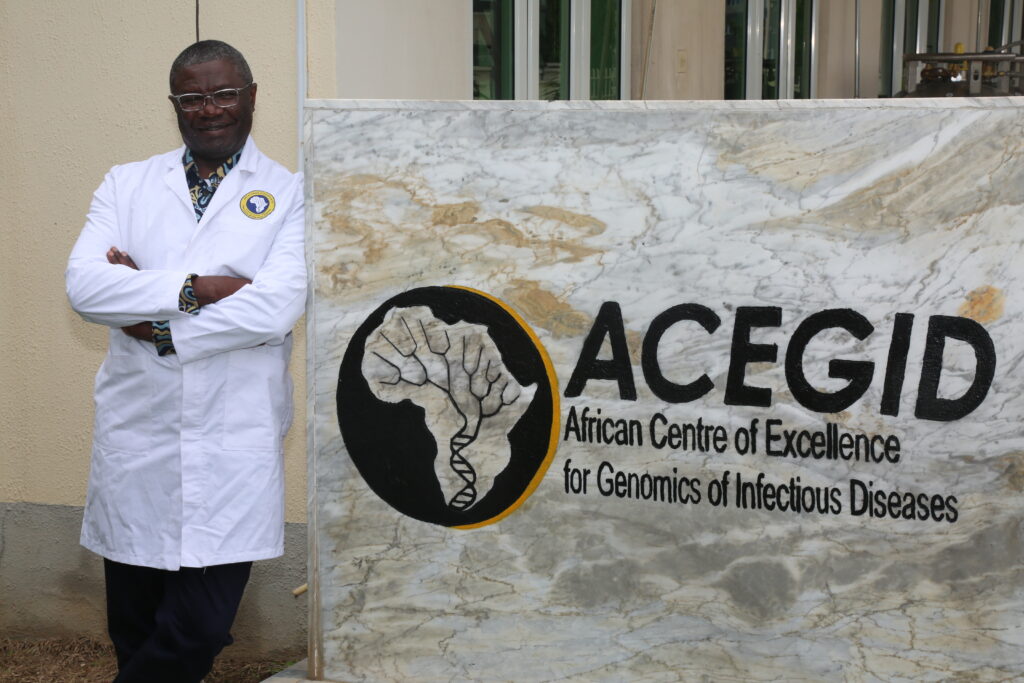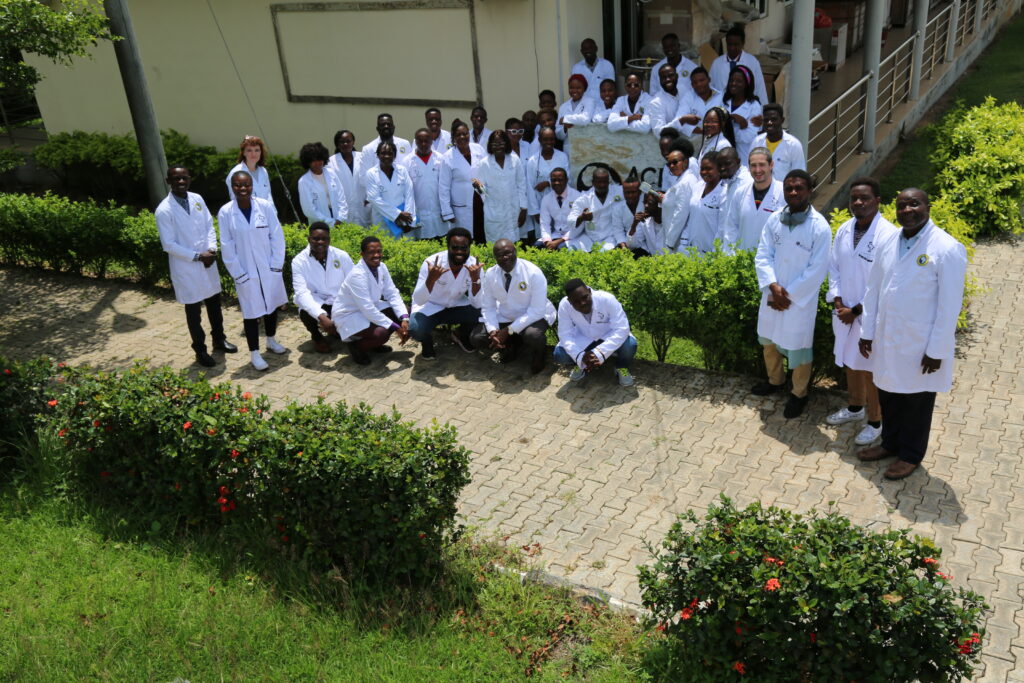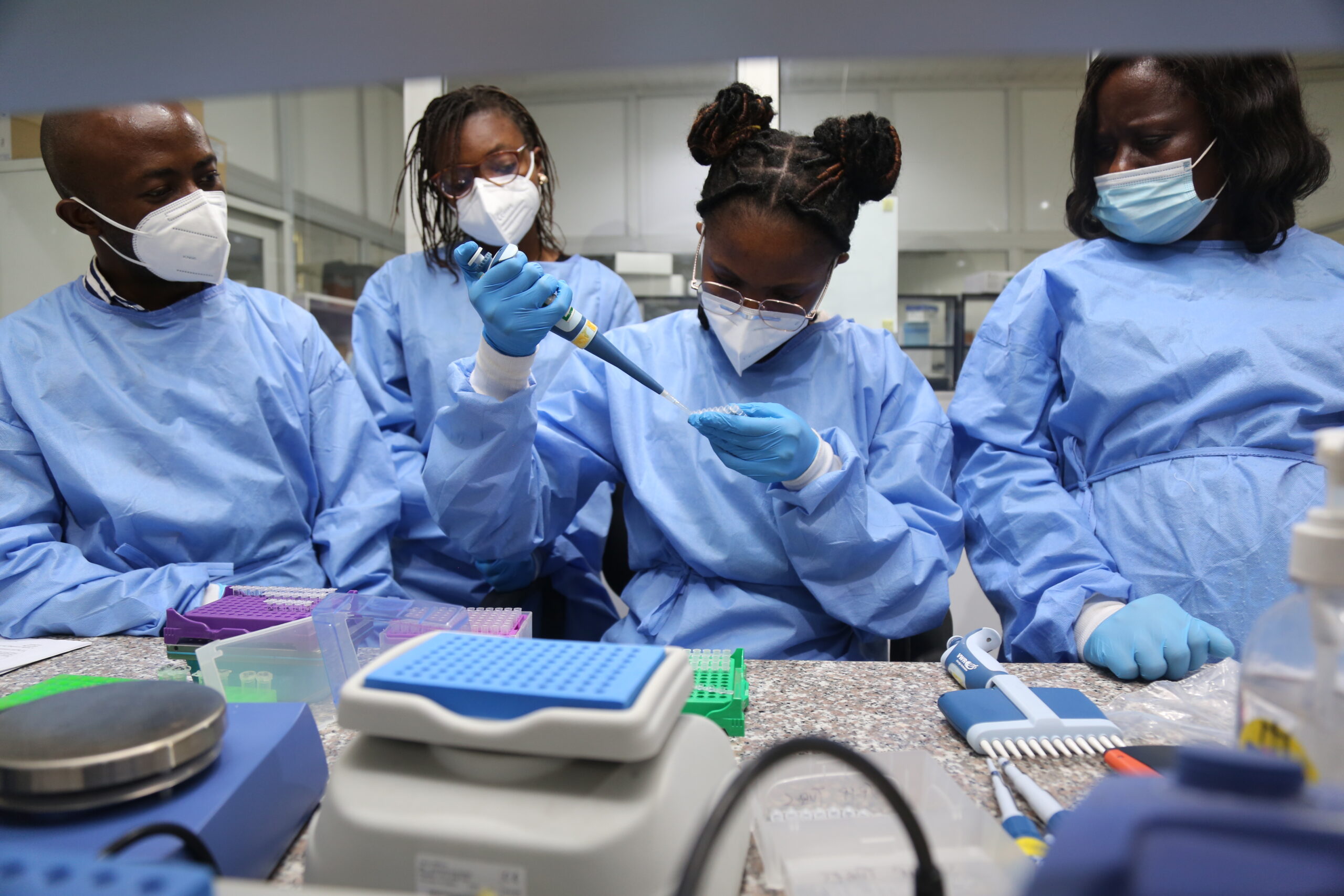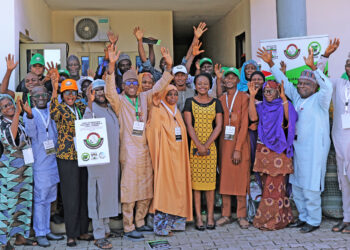Scientists at the Africa Centre of Excellence for Genomics of Infectious Diseases (ACEGID) and the Broad Institute of MIT and Harvard have uncovered different fever-causing viruses in Nigerian patients. Their work underscores the value of local (in-country) metagenomics in response to complex public health situations. This is especially important for real-time infectious disease surveillance, response, and outcomes.

The body fights several disease conditions, including viral infections, through several processes. Some of these biological processes lead to an increase in body temperature (fevers). In low and middle-income countries like Nigeria, fever is generally ascribed to malaria, which is routinely tested for. When the malaria test is negative, typhoid fever is the next suspect. But if the typhoid test is also negative, the cause of the fever becomes a mystery that needs to be solved.
To identify the cause of unknown diseases, scientists now study all the genetic materials (nucleotides) found in samples that are collected from patients. This technique (called metagenomics) involves sequencing (reading the nucleotide sequences) in the samples.
This report is contained in a new publication by the ACEGID team and its collaborators.
“Metagenomics is an unbiased technique that allows us to characterise multiple pathogens (that is, disease-causing organisms) in a sample at once,” said Dr. Judith Oguzie, the first author of the publication. “With this ability to detect different pathogens in one run, we can understand how simultaneous multiple infections affect disease outcomes.”

Over four years, they collected almost 600 blood samples from patients who have fevers. These included samples i) from individuals with symptoms similar to those of Lassa fever (LF), ii) from patients during outbreaks of a suspected infectious disease with unknown causes, and iii) from cases that could not be diagnosed in the hospitals.
In the first group of samples, they detected LF and in some cases, co-infection with other viruses, including common viruses and newly discovered viruses. One virus, pegivirus C, was associated with reduced mortality from Lassa fever. From the second group of samples, they uncovered both yellow fever and mpox (formerly called monkeypox) outbreaks.
Accurate and timely diagnosis of diseases is critical for both clinical care and mitigation of further transmission. The team worked closely with Nigeria’s public health institutions, especially the Nigeria Centre for Disease Control (NCDC), leading to strategic actions by NCDC and other relevant agencies.
“As we got the results, we promptly informed the NCDC and the National Primary Health Care Authority who initiated appropriate public health measures, such as vaccinations and awareness campaigns,” said Prof. Christian Happi, the Director of ACEGID. “Hence, the diseases were quickly brought under control.”
Nigeria has the potential to transform public health via the use of metagenomics for accurate, real-time diagnosis of diseases. This will ensure that surveillance, prevention, response, and control policy measures are backed by data.
ACEGID is one of 17 Centres of Excellence domiciled in 14 Nigerian universities under the World Bank-supported Africa Centres of Excellence for Development Impact (ACE Impact) Project. ACEGID is domiciled in Redeemer’s University, Ede, and offers an MSc and a PhD in Molecular Biology and Genomics. Both programmes are certified locally, by the National Universities Commission (NUC), and internationally, by the Agency for Quality Assurance through Accreditation of Study Programs (AQAS), an independent and professional agency for external quality assurance in the field of higher education, located in Cologne, Germany.
AQAS offers international accreditation at programme (Bachelor, Master, and PhD) and institutional levels and has conducted procedures on four continents, and several countries, including Austria, France, Turkey and Moldova, in Chile, Oman, Kazakhstan, Russia as well as Ghana and Nigeria.
Admission is currently ongoing in ACEGID into two new programmes, MSc, and PhD (Bioinformatics). It is expected that, in due course, both programmes will be accredited by both the NUC and AQAS.
ACEGID also hosts periodic genomics workshops and summer boot camps. These are intensive, residential, four-week-long genomics training courses targeted at foundation and advanced participants.
Culled from the ACEGID website

























